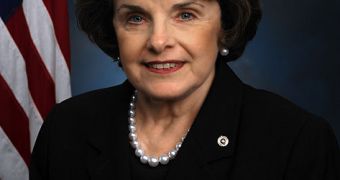After the US president delivered his speech on Friday, most were upset that the Obama administration wasn’t doing more to curb the NSA’s mass surveillance tools. Others, however, thought that the president already did too much.
In an appearance on NBC’s “Meet the Press,” Dianne Feinstein, Senate Intelligence Committee chairwoman, said that lawmakers who wanted to shut down the bulk metadata collection would not be successful.
“The president has very clearly said that he wants to keep the capability. I think we would agree with him. I know a dominant minority of the – everybody, virtually, except two or three, on the Senate Intelligence Committee would agree with that,” Feinstein said in a rather ambiguous statement.
Obama also discussed how the US government would no longer be holding the metadata. The NSA will have to get a court order every time it wants information on any individual. There have been no details regarding who will be holding all this metadata or for how long.
Feinstein believes the president’s decision will make everything difficult. “The whole purpose of this program is to provide instantaneous information to be able to disrupt any ploy that may be taking place,” she said.
The senator is completely disregarding the assessment coming from the White House review panel for the NSA, which concluded that there was no evidence that the intelligence agency actually used information coming from the metadata collection to disrupt any type of terror ploy in the country or elsewhere.
Furthermore, another study signed by the New America Foundation, backs the panel’s statement. It shows that there is only one case since 9/11 when metadata was used at the capture of a man who was sending money to a terrorist group in Somalia, but there was never an actual attack of any kind.
It should also be noted that Feinstein's committee is in charge of overseeing the NSA's activities. However, when it was revealed that the NSA was spying on world leaders, rather than regular Internet users, she was surprised by the information and called for putting an end to this program.

 14 DAY TRIAL //
14 DAY TRIAL //